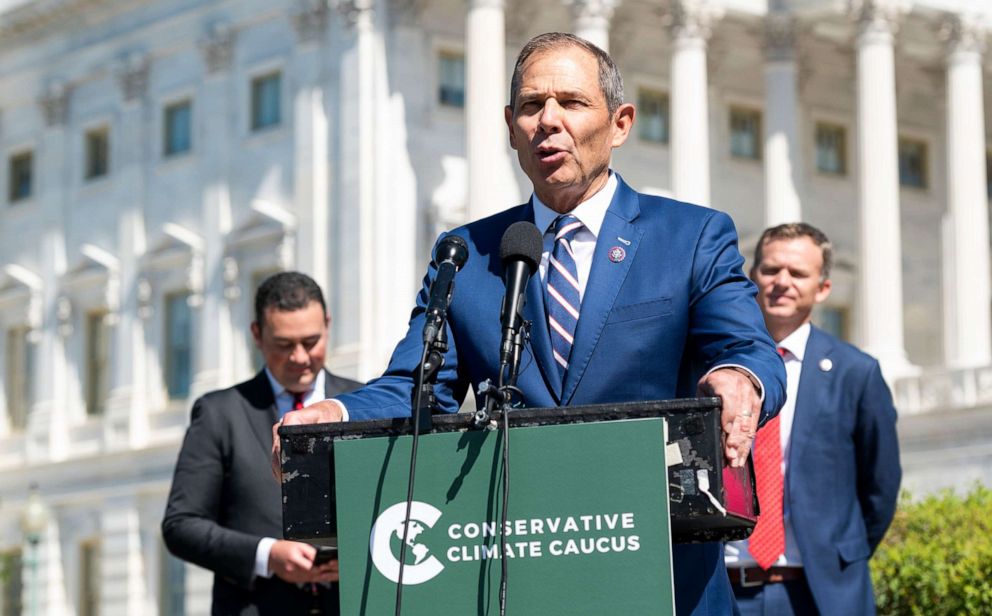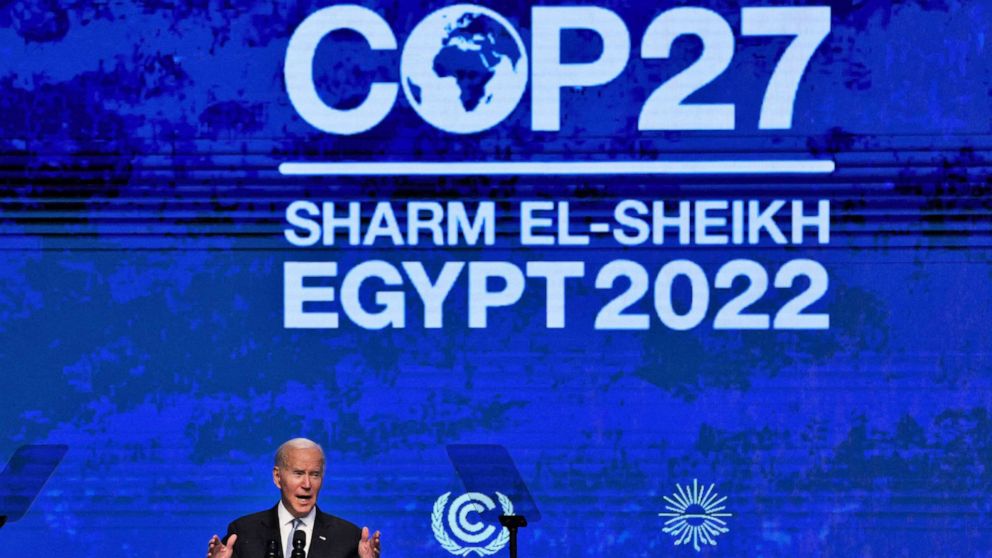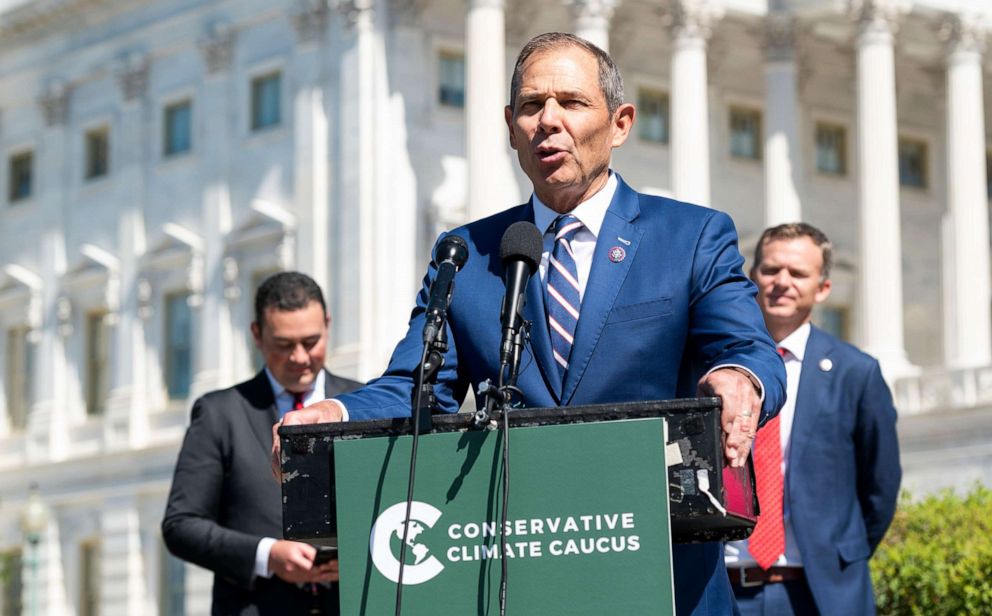House Republicans previewed how their party would approach climate and energy policy if they win the majority in the House of Representatives at an event at the United Nations’ climate summit known as COP27 in Sharm el-Sheikh, Egypt, this week.
The GOP delegation to COP27 included members of the Conservative Climate Caucus who sit on critical House committees that handle issues around regulations to reduce greenhouse gas emissions and energy policy.
Rep. Garret Graves of Louisiana, ranking member of the House Select Committee on Climate, and the other Republicans at the summit said the U.S. should not demonize fossil fuels like natural gas and that those types of fuels can can still be part of the energy transition to a cleaner energy system.
“The target here that we’re trying to attack is the emissions is not the energy source, and I think that our research and development needs to be focused on the types of energy resources that each country has and in the United States one of those is oil and gas, 30 times the energy density of the next closest renewable,” he said.
He added, “So one of the things we ought to be doing is not attacking oil and gas but be attacking the emissions associated with it to where it can be indistinguishable from other renewable energy technologies to where it can be an arrow in the quiver as we try to address our objectives of energy, affordability, reliability, cleanliness, exportability, and securing the supply chain.”

In this June 23, 2021, file photo, Rep. John Curtis, R-Utah, speaks during the press conference introducing the Republican Climate Caucus outside of the Capitol in Washington, D.C.
Bill Clark/CQ-Roll Call, Inc via Getty Images, FILE
Graves also said the country needs to invest more in helping communities in areas vulnerable to the impacts of climate change, such as near coastlines, to adapt or become more resilient to the impacts of climate change because the cost of recovering after extreme storms is getting too high.
“This is about making investments in communities where you have vulnerabilities, making sure that these communities are resilient enough to withstand these, these storms and these disaster events that make sure that we’re not continuing to come in to put the pieces back together, continuing to come in and spend these billions of dollars,” he said.
The delegation emphasized that their caucus represents Republicans who care about protecting the planet and don’t doubt that climate change is a problem that should be addressed, but they disagree with what they called “radical environmentalism” that says the world is going to end if we don’t shut down all fossil fuels immediately and that wind and solar are the only solutions.
“I distinguish between radical environmentalism and rational environmentalism. Radical environmentalism is what we mostly see. And that perpetuates solutions that are downright scary and foolish,” said Rep. Dan Crenshaw, R-Texas, referencing rhetoric that says the world is on fire and attributes all extreme weather events to climate change.
“There’s a cost. There’s problems that we should deal with and that we have an interest in mitigating,” Crenshaw said. “There’s conservation efforts that we have an interest in perpetuating. Absolutely. But let’s not lie to our children and scare them to death and tell them they’re going to burn alive because of this, because that is not what it says. That’s not what the U.N. report says. “
Crenshaw urged “rational environmentalism,” where both sides can agree on a need for clean air, clean water, better conservation and cleaner energy.
Crenshaw said the energy crisis in Europe was made worse by countries’ efforts to transition to renewable power too quickly, calling it a misguided “deification” of wind and solar as the only solution that risks backfiring in the long run.
“We better not have a higher cost for our solutions than the problem itself. We better have rational environmentalism instead of radical environmentalism, radical environmentalism will send us down a path of poverty and despair,” he said.
Crenshaw said the U.S. should allow the oil and gas industry to expand so the country could export more natural gas to replace coal-fired power plants abroad, which he said would ultimately reduce global emissions. The panelists also said the country should also invest in more technologies like nuclear energy that can be used in the US and exported to developing countries to help them grow their economies without increasing the use of fuels like coal.
The U.N. climate science panel has said the world needs to stop investing in new fossil fuel infrastructure as soon as possible to meet emissions reduction goals to limit warming to 1.5 degrees Celsius and that most new fossil fuel infrastructure will end up abandoned as it’s replaced by cleaner sources of energy.

President Joe Biden delivers a speech during the COP27 climate conference in Egypt’s Red Sea resort city of Sharm el-Sheikh, on Nov. 11, 2022.
Ahmad Gharabli/AFP via Getty Images
Rep. John Curtis, R-Utah, said there is a lot of interest among Republicans for protecting the land and the environment, referencing constituents in his state from places like Carbon County, Utah, that resent the rhetoric against fossil fuels and want to be part of the solution by pivoting to mine more critical minerals for clean energy technologies. But he said those projects are difficult because so much of his state is federal land where mining projects are not allowed or face more stringent requirements.
Curtis said the caucus’ goal will be to educate even more Republicans about what climate action under Republican values looks like and that there is space for bipartisan climate policies.
“Without Republicans engaging in this debate, we will not make the progress we need to make as a country, any significant accomplishment in the United States has been bipartisan,” Curtis said. “The ideas not only that, the ideas that Republicans bring to the table are essential to meeting the goals that we all have for a better environment,” he said.




